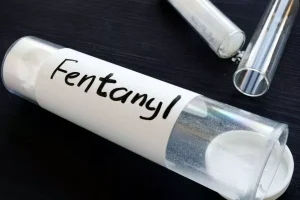
Substance abuse counselors, also known as addiction counselors, are licensed professionals trained in psychology, human behavior, chemical dependency and therapeutic methods. These therapists help people with behavioral disorders (primarily substance use) by talking through the complexities and causes of their addiction. Substance abuse counselors will work one-on-one with clients to develop goals and strategies for pursuing sobriety — all in a compassionate and confidential environment. People who choose a career in addiction counseling can work in a variety of settings, from hospitals and rehabilitation centers to halfway houses, prisons and private practices.
- This equals about 1 in 13, or 7.8% of all adolescents and adults in the United States.
- Some people may need help making an appointment with their health care provider; others may benefit from having someone accompany them to their health care visits.
- Therefore, psychiatrists are able to evaluate the influence of any physical health conditions on mental health and prescribe medication if needed.
The Differences Between Psychologists, Therapists, and Counselors
- If you have tried to quit or cut back on your own and found you could not do so, you may want to try other options and learn more about treatment for substance use.
- Positive emotional connection to those around you is the quickest way to calm your nervous system.
- Interim care can provide daily medicine and emergency counseling to keep you safe until an outpatient, inpatient, or residential spot is ready for you.
- Researchers at NIMH and around the country conduct many studies with patients and healthy volunteers.
It enabled me to teach, see patients and work in various types of institutions. Furthermore, I wanted to develop more of a specialized approach in the empirically supported treatment of adults, specifically in cognitive behavior therapy and acceptance and commitment therapy. Psychologists must earn a doctorate in psychology, either a Ph.D. or a Psy.D. Generally focuses more on applied psychology practice, while a Ph.D. program emphasizes research in psychology and pedagogy.
- The mental health problems that most commonly co-occur with substance abuse are depression, bipolar disorder, and anxiety disorders.
- Always talk with your doctor before making any changes to your medication or treatment routine.
- Still, in general, counselors help address specific issues, usually in the short-term, with advice and counseling.
- They are part of most treatment plans and usually happen with a licensed behavioral health professional, either one-on-one or in a group setting.
Clinical Research

Substance abuse treatment at The Recovery Village includes a dual diagnosis process to identify co-occurring disorders so that mental health counseling can be integrated accordingly. For many clients, the two diagnoses (substance abuse and mental health disorder) are deeply intertwined, requiring simultaneous treatment. Note that licensed substance abuse counselors must meet similar professional standards as therapists. According to DHHS, most states that offer substance abuse counseling licenses require licensed counselors to have a master’s degree—the same level of education as many therapists.
Substance Use Counselor vs Social Worker Careers
Positive emotional connection to those around you is the quickest way to calm your nervous system. If you don’t have anyone you feel close to, it’s never too late to meet new people and develop meaningful friendships. BetterHelp is an online therapy service that matches you to licensed, accredited therapists who can help with depression, anxiety, relationships, and more. Take the assessment and get matched with a therapist in as little as 48 hours. A mental health counselor may refer you to a psychiatrist to treat the biological underpinnings of a mental health condition. The team at Fair Park Counseling can help you determine which one you need to get your recovery process started.

What separates a good therapist from a bad one?
- Following the path to becoming a social worker allows you to provide support to individuals, their families, and at-risk populations.
- And admitting you have a problem and seeking help is the first step on the road to recovery.
- If you require more hours, Level 2.5 provides 20 or more hours of this type of care per week.
- Some people in these groups, although well meaning, may mistake taking psychiatric medication as another form of addiction.
- Although the evaluation is not intended to provide an immediate diagnosis, it does help guide the providers in offering you the best advice moving forward.
These mental health careers all require state licenses, though the specific requirements vary by state. All also offer support for mental substance abuse counseling health and well-being through applied psychology. Each requires at least a master’s degree that includes extensive supervised work.
Major Depressive Disorder (MDD)
Celebrating 75 Years! Learn More >>


Substance Abuse Treatment for Co-Occurring Disorders

